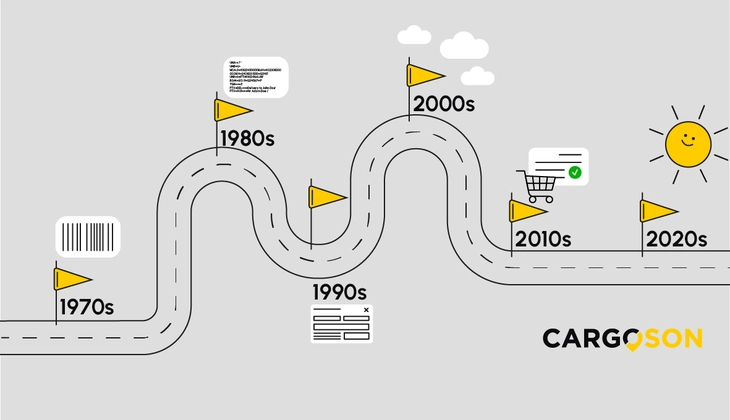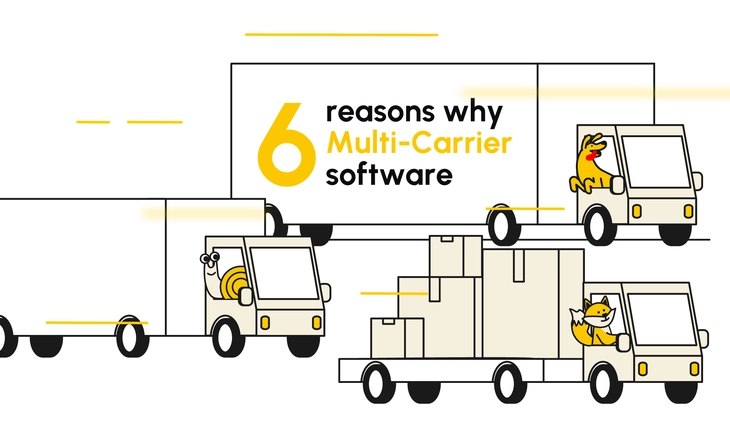What is Enterprise Shipping?
Enterprise shipping is a strategic process. It's more than just moving goods; it's coordinating multiple factors — shipping methods, freight carriers, delivery times, and more — for a seamless operation. This operation is not just visible but also trackable to anyone given the privilege within the organization.
Business Rules: Driving the Shipping Process
In the enterprise, shipping is a process led by carefully outlined business rules. These rules guide the collection, utilization, and storage of shipping data. They provide a blueprint for a reliable, efficient shipping operation, creating an experience that leaves customers satisfied.
What Are Business Rules?
As outlined by IBM, business rules guide everyday decision-making within businesses. In the context of shipping, they dictate how relationships between objects, such as customers and their orders, are handled. This conversion of an organization's activities into concrete business logic enables process automation in the enterprise shipping context.
Business Rules in Shipping
In shipping operations, business rules might direct actions based on conditions like "IF the total weight of an order exceeds 50kg, THEN use freight shipping." Such transport automation rules provide a structured approach to decision-making, leading to a more efficient and reliable shipping process.
The Impact of Business Rules
By enforcing these rules consistently across your operations, your enterprise shipping software can optimize compliance, operational efficiency, and customer satisfaction. They allow the software to make intelligent, real-time decisions, streamlining the shipping process and enhancing overall performance.
Rethinking Processes for Greater Efficiency
Beyond Implementing Technology
Integrating an enterprise shipping solution isn't solely about the new tech. It's a process of refining existing workflows for increased automation. The goal? Make operations more efficient, bolster productivity, and elevate the customer experience.
Embracing Change
In many companies, traditional, manual tasks hold a stubborn foothold. Staff may manage freight prices and shipments via Excel, or handle spot price requests through email. Change may be feared as a job-killer.
Untapped Potential in Supply Chains
However, a stark reality check comes from a McKinsey report which reveals that supply chains are the least digitized of five business areas examined, with only 43% digitization. Surprisingly, a mere 2% of executives considered the supply chain as their digital strategy's focus.
The Profitable Impact of Supply Chain Digitization
It's high time to refocus. According to the same McKinsey report, digitizing supply chains can boost annual EBIT growth by 3.2%—more than any other business area. Businesses trying modern enterprise shipping software usually see the light. Automation frees staff for strategic tasks, increasing efficiency, and reducing errors. The era of digital transformation is here, and it's empowering people to do their best work.
Shipping Software: The Game Changer
Transportation management system solutions are transforming the logistics industry. With features like multi-carrier shipping, carrier integration, rule-based carrier selection, and shipment tracking, they offer more effective shipping operations management. They can meet the needs of your supply chain operations and help keep pace with the ever-evolving shipping industry.
The Demand for Scalability in Shipping Systems
As businesses grow and shipping needs evolve, the systems to manage these tasks should be adaptable. Solutions like Cargoson and others are designed with scalability and adaptability in mind, making them invaluable for a modern, expanding business.
Enterprise Shipping and System Integrations
Your enterprise shipping software should offer smooth integrations with 3PL providers. The choice of software also matters when you need to establish new integrations. Some providers might turn down the request, delay the process, or charge heavily. Therefore, consider a system that allows for quick, cost-effective addition and support of new 3PL software integrations to keep your operations running smoothly.
Benefits Across the Business Spectrum
An enterprise shipping solution has an impact far beyond the logistics department. Every part of the business can access and benefit from shipping data. From customer service to accounting, and even sales, everyone can leverage the system's insights for improved operations.
The ROI of Enterprise Shipping Solutions
An enterprise shipping software solution should bring clear ROI through reduced shipping costs, improved delivery times, or enhanced visibility into operations. It's about improving current processes, not just fixing what's broken. A careful cost-benefit analysis is crucial to ensure a wise investment.
Freight Management: An Essential Element
Effective freight management is essential in enterprise shipping. Your transportation management software solution should provide robust freight management features, enabling efficient control over land, air and sea freight movements in both line haul and last mile transports. A reliable software will ensure that freight ordering, comparison, tracking, and cost management are hassle-free.
The Future of Shipping: International Coverage
With the business world becoming increasingly globalized, your enterprise shipping solution should be capable of handling international shipping requirements. This includes managing shipping rates, complex customs regulations, and preferred carriers, ensuring a smooth shipping process across borders.
The Evolving Role of Warehouses
Warehouses aren't just storage facilities; they're integral parts of the shipping process. Hence, integrating your enterprise shipping software with your warehouse management system like the Sweden-based Ongoing WMS can help in accurate measurements of goods, better inventory control, and more efficient transportation management.
The Final Word
As we embrace digital transformation, a digital enterprise shipping solution has shifted from being a luxury to a business necessity. Not only does it provide enhanced control over shipping operations and clear ROI, but it also improves efficiency throughout the organization. This dual advantage significantly bolsters business performance and customer satisfaction.
It's important to remember the largely untapped potential found within the digitization of supply chains. Despite being the least digitized business area, their effective transformation can lead to the highest EBIT growth. In light of this, refocusing our efforts on digitizing supply chains becomes not just an opportunity, but a strategic imperative.






